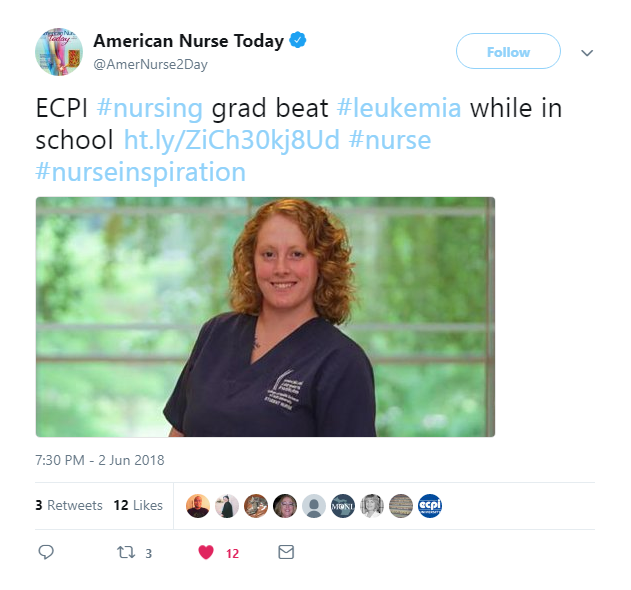Is Nursing a Science Major? Will I Need Science Classes to Study It?
Many who are considering nursing as a profession wonder if they'll be able to handle the more challenging courses required to earn a degree. While nursing education isn't, strictly speaking just about science, the material is science based. The goal is applying the knowledge to treat sick and injured patients.
To be an effective nurse, you need a good understanding of how biology and chemistry work in the human body. Nursing programs are designed so students learn everything about science they need to know in order to achieve this outcome.
Are You Good at Science?
If you're one of those people who say they're not good at science, we'll need to break down precisely what you mean by that. For instance, do you mean you haven't got a chance at passing a course in quantum physics, or do you mean even basic biology eludes you?
Undoubtedly, nursing education will be challenging to those who fear the sciences. It's challenging even to those who are good at science. Among the sciences you will need to get some grounding in are anatomy and physiology, pharmacology, chemistry, and biochemistry.
Most nursing students of average intelligence find that they are able to master the material, if they study hard and stay focused. No one will tell you it's easy, so don't imagine you can breeze through the courses. If you don't have time or can't make time to study, you won't learn what you need to know.
A note on learning: Although the student memorizes a great deal of material in nursing school to pass the tests, in your professional life, the important thing will be to remember that you've been exposed to certain concepts and terms. Even if you can't remember everything about a medication or an illness when you're out of school, you have access to that information when it's needed through the internet and your colleagues.
How Nurses Use Science in Daily Tasks
One of the most important courses a nurse will study is Anatomy and Physiology. This is the foundation course for what nurses do every day, as it involves the structure and function of the human body. Students in this course typically study these systems:
- Integumentary
- Reproductive
- Skeletal
- Cardiovascular
- Lymphatic
Anatomy focuses on structures of living creatures, particularly the components of the biological system but also the structure of the tissues and organics. Physiology focuses on the functions of cells, tissues, and organs and how they work together.
Anatomy and Physiology helps the nursing student understand how all the systems and sub-systems of the body work together to maintain balance, so they can assess, monitor, and report the condition of the patient. A good foundation in this science helps nurses diagnose medical problems so they can assist the physician in charge in determining a course of treatment.
Pharmacology is another important course. Education in pharmacology has become more critical as nurses increasingly have a role in administering, prescribing, and educating patients about medications. Many nursing educators have called for more intensive education for nurses in this area, as a way to increase their confidence when they are called upon to administer drugs, educate patients, and prescribe medications.
Pharmacology courses teach nursing students about a wide variety of medications, as well as determining dosage, how often medicines are to be administered, and the appropriateness of administering drugs. Nurses must also learn about potential drug interactions -- that is, where two or more medications react with one another and cause side effects that may be harmful.
Nurses must have a good foundation in Biochemistry to understand how the body's systems work, from the cellular level, all the way up to the muscles, skeleton, and organs. Further, a nurse must study biochemistry to know how medicines interact with one another, as well as what effect and what side effects they may have when administered to treat symptoms of an illness.
Science Classes will Build off Each Other
Generally, a nursing student will study the periodic table in basic chemistry, moving on to biochemistry, which looks at biological and chemical processes in a body, including the formation of fat, carbohydrates, proteins, and lipids. Nursing students may also study organic chemistry, where they learn about atoms, molecules, and compounds. This course is important because it teaches how organic matter reacts to various chemicals.
Don't Fear Science! It Will Help you to be a Good Nurse
With the right attitude, plenty of organization, and possibly some tutoring on the side, even a science-averse student can get through the more complex science material you must master to become a nurse. Even if you struggled through high school chemistry or biology, don't let this stop you from pursuing your dream of becoming a nurse. Determination and extra study sessions could be just what you need to make the grade!
Are you interested in earning a Bachelor of Science Degree in Nursing (BSN)? ECPI University offers this course at an accelerate rate. For more information about this exciting program, connect with a helpful admissions counselor today.
It could be the Best Decision You Ever Make!
DISCLAIMER – ECPI University makes no claim, warranty, or guarantee as to actual employability or earning potential to current, past or future students or graduates of any educational program we offer. The ECPI University website is published for informational purposes only. Every effort is made to ensure the accuracy of information contained on the ECPI.edu domain; however, no warranty of accuracy is made. No contractual rights, either expressed or implied, are created by its content.
Gainful Employment Information – Bachelor of Science in Nursing – Traditional Track
For more information about ECPI University or any of our programs click here: http://www.ecpi.edu/ or http://ow.ly/Ca1ya.





